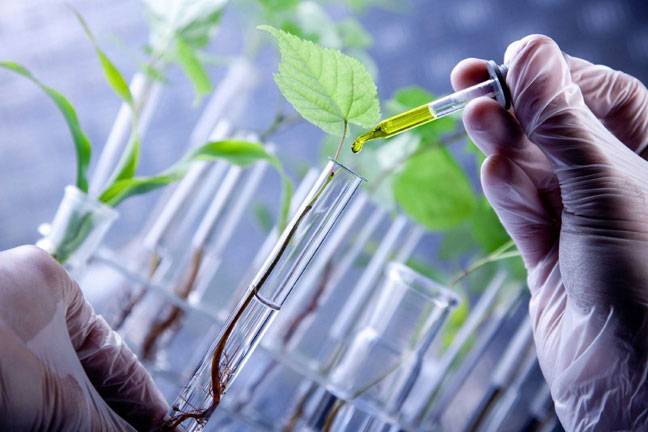LAHORE - The Lahore Chamber of Commerce & Industry (LCCI) has called to adopt modern technologies for agriculture sector to avoid post harvest losses and to enhance agricultural production.
In a statement, LCCI President Abdul Basit, LCCI Senior Vice President Amjad Ali Jawa and LCCI Vice President Muhammad Nasir Hameed Khan said that Pakistan is one of the fertile countries of the world but its agriculture sector is suffering because of various reasons. “There is a dire need for addition in cropped area as we cannot afford to stay where we are today in terms of cropped areas and per hectare yield because we are already running well short of per capita food availability,” they said.
They said that though Pakistan’s almost 43 percent labour force is dependent upon agriculture, the yield gap in the four major crops of Pakistan is three times from the best producers in the world such as China and Egypt. They said that low yield has contributed to the poverty in rural areas besides forcing the country to import agriculture produces to feed its population.
They said that the fact should be an eye opener that China produces two times more cotton and wheat per hectare and Egypt produces around three times more rice and sugarcane per hectare as compared to Pakistan. “Factors that are recommended to improve the yield are through large scale introduction of hybrid seeds and mechanised farming, high efficiently irrigation systems such as drip irrigation and reduction in wastage of crop through introduction of privately owned storage facilities and cold storage facilities”, the LCCI office-bearers added.
They said that 21st century belongs to biotechnology and Pakistan has tremendous potential to emerge as biotechnology leader but to achieve the goal private sector, scientists, researchers and government would have to work hand in hand. They said that Pakistan’s agriculture sector is losing heavily due to insufficient utilisation of biotechnology as the magic progress of agriculture sector is only due to genetically modified crops. They said that agriculture sector in Pakistan has a huge potential. It continues to be the single largest and dominant driving force for growth as well as the main source of livelihood for 66 percent of Pakistan’s population, but it has always faced two major problems: first, productions per acre are lower than many countries. Secondly, around 40 percent of production is wasted in the form of post-harvest losses due to insufficient utilisation of biotechnology.
The LCCI office-bearers said that the federal and provincial governments should give a special focus on promotion of research and quality crops because green revolution is only possible through genetic engineering. They said that Pakistan would have to focus on genetically modified and hybrid crops to tap true potential of agricultural productivity in the country.
While stressing the need for establishment of institutes both at provincial and federal levels for creating awareness among the farming community about Genetically Modified (GM) technology, they said that sustainability and improvement in crops yield are the major challenges to meet upcoming threats of increasing population and depleting water resources. “Biotechnology has shown considerable potential to raise agricultural productivity by addressing problems not solved through conventional research. Among other applications of biotechnology, development of genetically modified organasims is the promising tool to facilitate plant breeding in development of crops to insect and tolerant to herbicide, the LCCI office-bearers added.
They said that genetic modified crops have contributed to sustainable development in several significant ways including: contributing to food security and more affordable food, conserving biodiversity, alleviation of poverty and hunger, mitigating climate change and reducing greenhouses gases, contributing to the cost-effective production of bio-fuels and above all by contributing to sustainable economic benefits.
The genetically modified crops have an important role to play in lessening the environmental impact and improving the sustainability of food production. Insect-resistant rice, for example, has the potential to benefit about 1 billion people.






